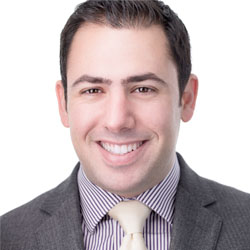
Thalamocortical architectures for cognitive control and flexibility
Description
Interactions between the cortex and thalamus are critical for sensation, action and cognition. However, most of our understanding of these interactions is in the context of sensory processing. My lab has focused on cortico-thalamic loops that are non-sensory, allowing us to discover new principles of cortico-thalamic interactions beyond sensory processing. In my talk, I will show how the thalamus plays previously unrecognized roles in implementing cognitive control and flexibility, which involve rapid reconfiguration of task-relevant prefrontal representations
Speaker Bio
Michael Halassa aims to understand the neural basis of cognitive control and flexibility, particularly as it relates to attention and decision making. To study these questions, he has developed behavioral models of cognitive function in mice, allowing him to probe the underlying neural circuits and computations using parametric behavior, electrophysiological recordings, and causal manipulations. His major current focus is understanding the function of the thalamus, traditionally considered a relay station for sending sensory information to the cortex. Halassa is also a board-certified psychiatrist with fellowship training in psychotic disorders. Motivated by this clinical training, Halassa studies how the brain generates hypotheses about the world and how these hypotheses may be corrupted by disease processes such as schizophrenia. By developing perceptual tasks in animals that capture the underlying basic cognitive operations, Halassa aims to understand how the healthy brain generates such hypotheses and why the diseased brain has difficulty changing or revising them.
Halassa received an MD at the University of Jordan in 2004 and a PhD in neuroscience from the University of Pennsylvania in 2009. Following simultaneous appointments as a postdoctoral fellow in the laboratory of Matthew Wilson at MIT and as a resident in psychiatry at Massachusetts General Hospital, he joined the New York University faculty in 2014. Halassa joins the Department of Brain and Cognitive Sciences as an assistant professor and the McGovern Institute for Brain Research as an associate investigator.

